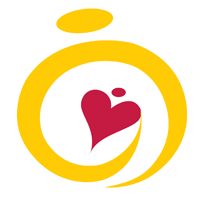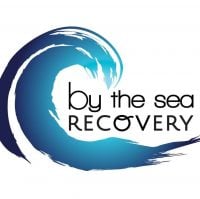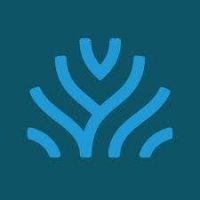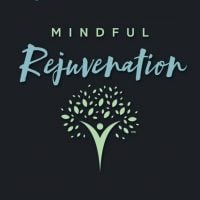McAlister Institute
Drug Rehab Center in Oceanside, California
McAlister Institute is an accredited addiction treatment facility located in Oceanside, California that provides comprehensive care for those suffering from opioid, substance abuse, dual diagnosis, and mental health issues through a range of options including drug rehab, dual-diagnosis, intensive outpatient, intervention, outpatient, and aftercare support levels of care.
About This California Facility
McAlister Institute - Waring Road, situated in Oceanside, California, is a renowned addiction and mental health treatment center. With a State License Accreditation, this facility has a proven track record of delivering exceptional care to individuals grappling with a wide range of substance abuse and mental health challenges.
• Comprehensive drug rehab programs tailored to individual needs
• Specialized dual-diagnosis treatment for co-occurring mental health disorders
• Intensive outpatient programs offering structured support while maintaining daily responsibilities
• Expert intervention services to guide families in helping their loved ones seek treatment
McAlister Institute - Waring Road's State License Accreditation underscores their dedication to upholding the highest standards of care. Their team of experienced professionals is well-equipped to address a variety of substance abuse issues, including opioid addiction, alcoholism, and drug addiction.
The facility provides targeted treatment for specific addictions and co-occurring mental health disorders. They offer a continuum of care, including intensive outpatient programs, outpatient counseling, and aftercare support, ensuring individuals receive the appropriate level of support throughout their recovery journey.
Genders
Ages
Modality
Additional
Accreditations
State License
Conditions and Issues Treated
Substance abuse typically leads to addiction, which requires specialized treatment programs at McAlister Institute to address. Many people benefit from inpatient drug rehabilitation, which includes inpatient acute care and residential rehabilitation. Other levels of care include intensive outpatient therapy, individual counseling, and support groups. Family therapy is also an essential part of treatment for substance abuse.
A combination of treatments is often needed to treat drug abuse issues effectively. In the case of drug abuse, there is no easy answer or one-size-fits-all cure.
Opioids are a series of medicines that are used for pain relief. Opioid addiction refers to the compulsive pursuit of opioids, even though they are not medically needed. Medication-assisted therapy at McAlister Institute in Oceanside, CA requires care in which both medications, medication, and behavioral treatments are used.
Substance use disorder falls under two categories: Alcohol or Drug Abuse and Drug Dependence. An individual suffering from a substance use disorder and mental health disorders is said to have a co-occurring disorder or a dual disorder.
Individuals with substance use disorders and mental health problems are said to suffer from a ‘dual diagnosis’. The most frequently identified mental health issues found in individuals with substance use disorders include anxiety, depression, schizophrenia, and schizoaffective disorder.
Levels of Care Offered at McAlister Institute
This center offers a variety of custom treatment tailored to individual recovery. Currently available are Aftercare Support, Drug Rehab, Dual-Diagnosis, Intensive Outpatient, Intervention, Outpatient, with additional therapies available as listed below.
An Intensive Outpatient Program like what’s offered at McAlister Institute, targets those who need intensive treatment but would rather get it in the comfort of their homes. The treatment programs vary in duration and intensity. They can be tailored to suit the patient’s needs.
When remaining at their job in Oceanside, or continuing their studies, the individual may live with their family while utilizing McAlister Institute‘s outpatient services. Treatment requires counseling the patient at the individual level, in a group setting, about substance addiction, drugs, and therapy sessions.
An intervention is a meeting held by families and friends of the addicted party, managed by McAlister Institute. It lets the person know that their loved ones are concerned about them. It is intended to make the addicted party agree to get help.
Interventions are often hosted by a mental health professional in California who knows how to communicate with people dealing with addiction. These intervention services can make all the difference when it comes to getting loved ones to agree to treatment.
Aftercare support involves the support given to a Oceanside, California patient after they complete treatment. It helps them adjust to normal life. It may include setting them up in a halfway house and enrolling them in programs like Narcotics Anonymous (NA) and Alcoholics Anonymous (AA). McAlister Institute‘s patients may also be provided with career training to help them get back into the job force.
Therapies & Programs
Family therapy is a set of therapeutic approaches that assumes that the entire family is a system. It utilizes the strengths and resources of the family to help the patient refrain from resorting to substance abuse. The impact of substance abuse is not just on the patient but on the entire family. Family therapy ensures that the patient gets adequate support from the family members after the treatment making the recovery process sustainable
- Family therapy guides all the members of the family to help the patient.
- It helps to repair relationships and improve communication between family members.
- It helps to keep the patient engaged and motivated throughout the treatment.
Group therapy is an important tool in recovery. Finding a peer group in Oceanside, CA and others who relate to your situation is a fundamental tool for recovery at McAlister Institute. Addiction tends to lead to isolation and feelings of uniqueness. The accountability and friendship that is found in group therapy can be more effective than any single other treatment approach. This is generally introduced early in recovery and is recommended as a lifetime treatment habit.
A type of cognitive-behavioral therapy is Dialectical Behavioral Therapy. It is intended for those who are vulnerable to self-harm and suicidal thoughts. McAlister Institute aims to help patients understand the connection between their feelings, emotions, and behaviors and provide them with the tools to make a difference in Oceanside, CA. For those whose addictions and habits originate from severe mental health problems, it is beneficial.
Negative feelings are common in substance abuse disorders. If not recognized, they can cause co-occurring disorders. CBT involves strategies that help to change the thinking and behavioral pattern. It can be administered as a monotherapy as well as a part of combination therapy.
The first three steps depend on the patient, so they are more specific and situational. The succeeding four steps center on practical issues brought on by substance abuse. Steps 8 and 9 deal with the social and emotional repercussions of addiction, encouraging patients to make amends to people they have wronged. These are followed by two steps revolving around the further exploration and reinforcement of Steps 1 to 9.
The last step requires an individual to extend a helping hand to people who are still in the early stages of their recovery.
Payment Options Accepted
For specific insurance or payment methods please contact us.
McAlister Institute Associated Centers
Discover treatment facilities under the same provider.
- McAlister Institute in El Cajon, CA
- Kiva Learning Center for Women and Children & New Connections in Lemon Grove, CA
- McAlister Institute - SRTC in Chula Vista, CA
- McAlister Institute - East County Adolescent Detox in El Cajon, CA
- McAlister Institute for Treatment and Educ (MITE)/Options Residential/Kiva in Lemon Grove, CA
Learn More About McAlister Institute Centers
Additional Details
Specifics, location, and helpful extra information.
Oceanside, California 92056 Phone Number(760) 726-4451 Meta DetailsUpdated April 15, 2024
Staff Verified
Patient Reviews
There are no reviews yet. Be the first one to write one.
Oceanside, California Addiction Information
More than 3 million of California's citizens are addicted to illegal drugs. Almost 800,000 people use hard drugs, almost 5 million use marijuana, and another 2.1 million abuse alcohol every year. Other substance abuse issues such as binge drinking and teen drug use are also common. Many illegal drugs such as cocaine, heroin, methamphetamine, and marijuana are smuggled into the state from Mexico.
The drug addiction problem in Oceanside, California, is relatively bad. Approximately 9.8 percent of people in Oceanside, CA, abuse drugs. Additionally, there were 947 reported deaths due to drug overdoses in Oceanside, CA, from 2013 to 2015. Oceanside residents' most commonly abused drug is marijuana. There are many different types of drug treatment available in Oceanside, California. Some common options include inpatient treatment, outpatient treatment, and 12-step programs.
Treatment in Nearby Cities
- Temecula, CA (22.7 mi.)
- Fountain Valley, CA (52.7 mi.)
- Colton, CA (61.4 mi.)
- Oakhurst, CA (315.9 mi.)
- Topanga, CA (98.1 mi.)
Centers near McAlister Institute
The facility name, logo and brand are the property and registered trademarks of McAlister Institute, and are being used for identification and informational purposes only. Use of these names, logos and brands shall not imply endorsement. RehabNow.org is not affiliated with or sponsored by McAlister Institute.







